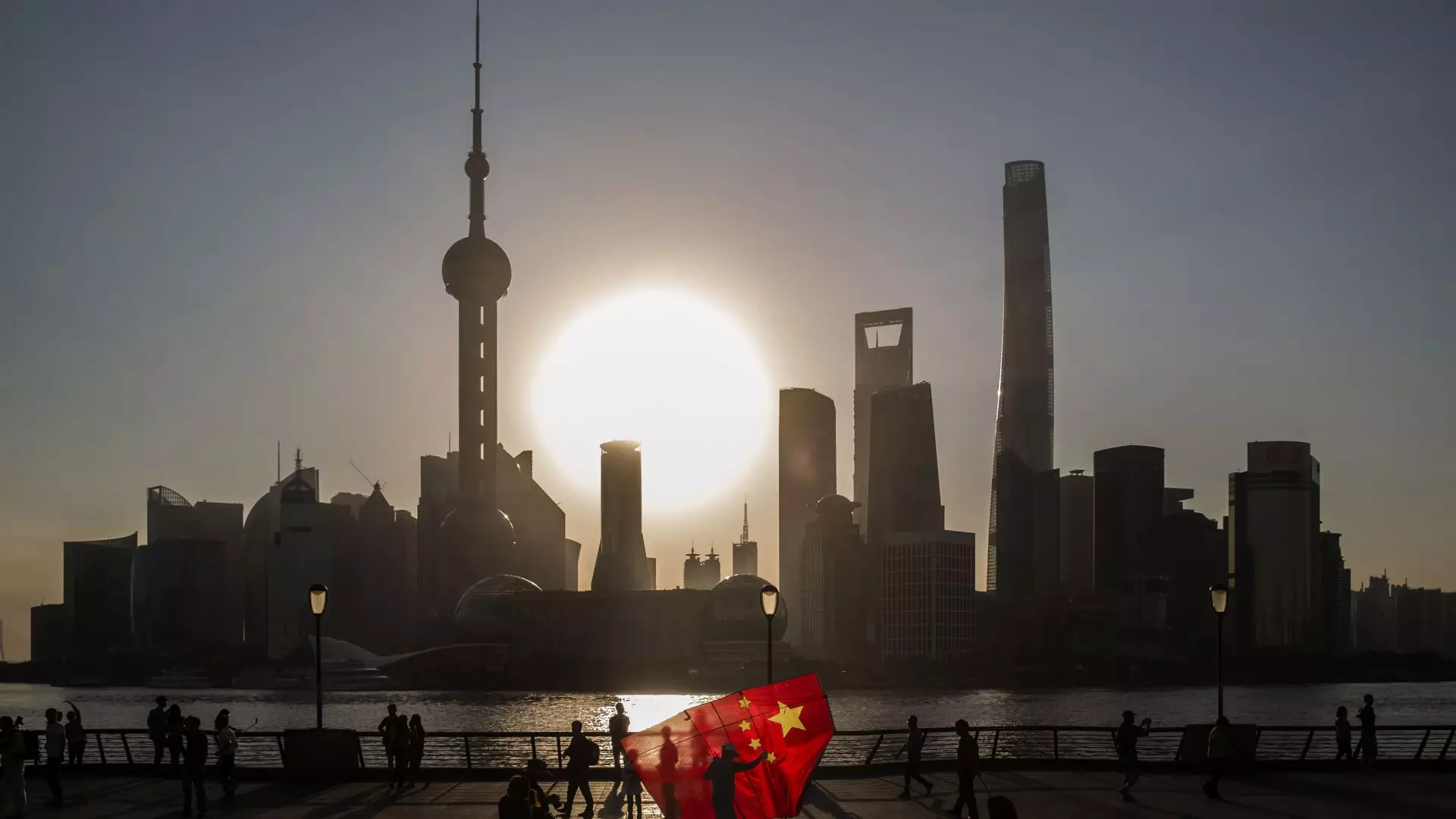The financial landscape across the Asia-Pacific region is moribund, revealing the severe impact of escalating trade tensions between the world’s economic giants. Opening Friday, the markets witnessed drastic declines, a bitter inflection point indicating how fragile the fabric of economic stability has become. The Australian S&P/ASX 200 plummeted by 2.28%, while Japan’s Nikkei 225 recorded an alarming 5.46% drop. South Korea’s Kospi wasn’t spared either, contracting by 1.55%. This decline signals a growing fear amongst investors, who seem painfully aware that optimism is a fleeting sentiment in light of current events.
Uncertainty Breeds Contempt
Risk aversion has anchored itself into the psyche of investors, and rightly so. President Trump’s recent tariff U-turn comes cloaked in ambiguity; extending the timeline for tariffs does little to dispel the shroud of uncertainty hanging over global trade. In fact, the situation has worsened, with the cumulative tariff rate on China escalating to a staggering 145%. What’s become painfully evident is that the administration’s policies are less about rectifying trade imbalances and more about stoking fears that ripple through investment decisions worldwide. Analysts from ANZ aptly noted that skepticism is rampant, suggesting that this ongoing tumult is poised to stifle economic growth substantially.
The Illusion of Recovery
Overnight in the U.S., Wall Street bore the brunt of panic selling, with the S&P 500 and Nasdaq experiencing declines of 3.46% and 4.31%, respectively. Despite the glimmer of hope provided by Trump’s temporary reprieve on tariffs in preceding sessions, reality came crashing down, validating the cynical view that these gestures do little to foster concrete resolutions. The reality-check is stark: investors are facing a perfect storm where optimistic gains are overshadowed by fear and uncertainty, making every spike in the stock market feel like an illusion.
The Broader Economic Implications
The ripple effects of these tumultuous market trends extend beyond mere stock valuations. The broader economic implications are chilling: ongoing trade wars don’t just impact the exchanges; they disrupt supply chains, lead to job losses, and sap consumer confidence. In a world already grappling with myriad challenges such as a pandemic and climate change, adding trade war woes into the mix is nothing short of reckless.
The losers in this game of economic brinkmanship are not just corporations or investors—they are everyday workers and consumers who bear the brunt of rising costs due to inflated tariffs. Economic policies should aim to build bridges, not divide nations, yet the rhetoric we see daily is indicative of a failure to grasp the profound interconnectedness of global economies.
The Path Forward
In the face of such uncertainty, it’s crucial to advocate for transparent and constructive dialogue between nations. Stakeholders need to demand policies that prioritize stability and growth over posturing and bravado. We are at a perilous crossroads, and the need for clarity has never been more urgent. The market may have entered a phase of reckoning, faced with the consequences of protectionist policies. The question remains: will we choose cooperation or allow fear to dictate our economic future?

